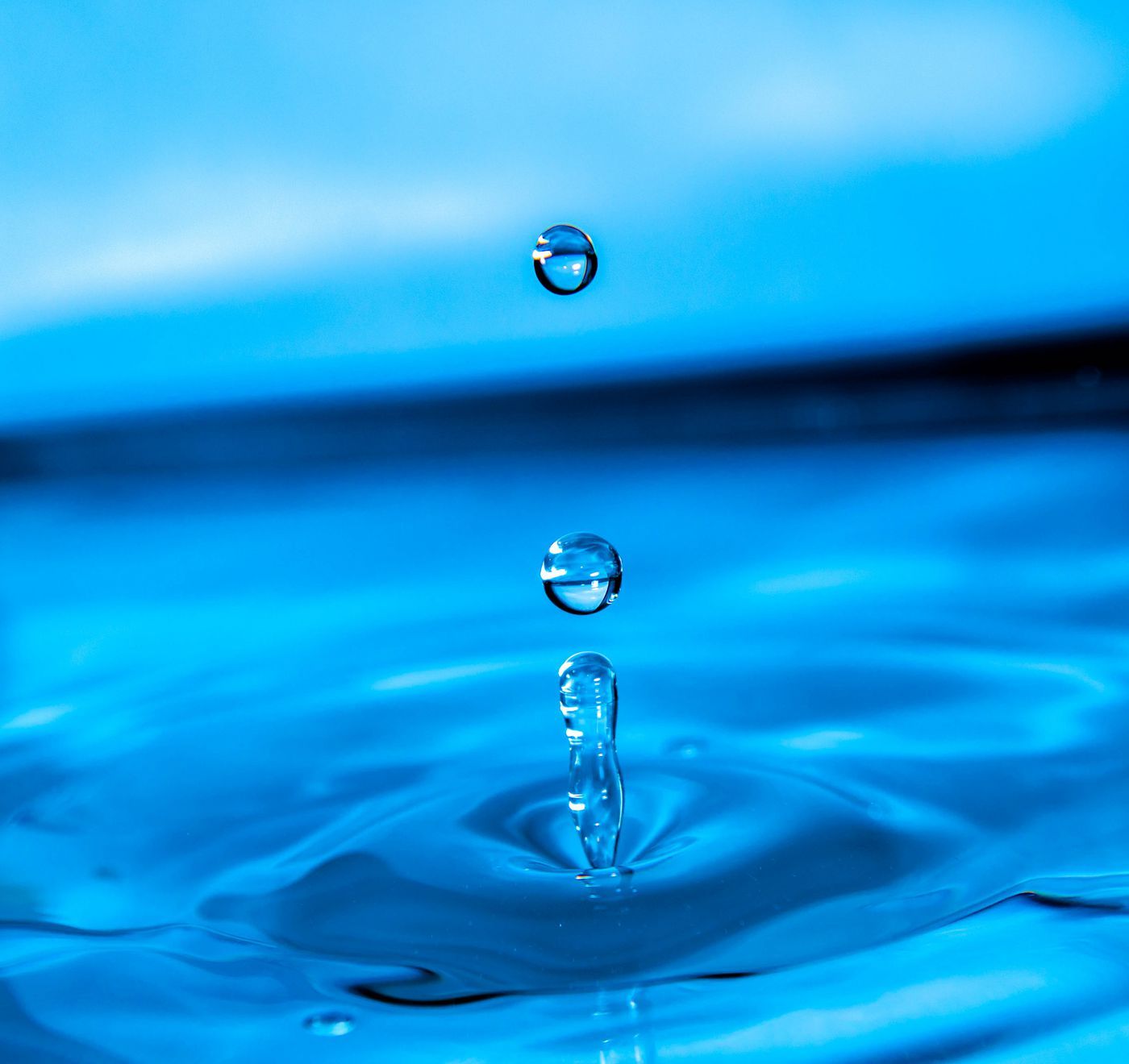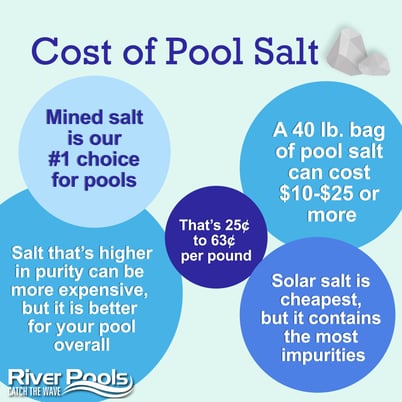Salt Water Pools: What Type of Salt Should I Use and Why?
November 23rd, 2009
4 min read
By Jason Hughes


What kind of salt should I put in my pool?
With salt water pools becoming so prevalent in the swimming pool industry today, a lot of questions arise—and not always a lot of answers.
A lot of pool companies don't even know the answers to the questions, and very little has been written about this subject.
Such confusion is understandable. Salt water pools grew rapidly within the industry, and there are so few case studies to understand this important science.
This article will help you understand the different types of salt currently available for purchase and which of these is best for use in a swimming pool with a salt chlorine generator.
What type of salt should I use for my salt water pool?
You should use mined salt in a pool with a salt chlorine generator. Use salt that's 95% pure or more, as the higher purity makes it much less likely to stain the pool or damage the equipment. To extend your salt cell's lifespan, only clean the cell when necessary.
Salt Trends
Pool owners in the 21st century are converting to salt water pools because of the low maintenance and high water quality.
Fourteen percent of the pools in America are salt pools right now. Although this may not sound like a lot, over 50% of the new pools that were installed last year in the United States included a salt generator.
Also, in the last five years, salt inground pools have increased 50 to 70% in the United States.
Currently, the systems are most prominent in Florida, which is understandable with the year-round swimming season and the amount of retired people that reside there who are on fixed incomes and want low maintenance.
3 Types of Salt for Pools
Although there are several different types of salt, only three types should be used in your pool.
- Solar salt
- Mechanically evaporated salt
- Mined salt
Making the right choice on the type of salt you use is critical in how well your pool will maintain its water chemistry and how long your salt generator will last.
It also has an impact on whether you will have problems with staining and damage to your pool and its accessories.
Salt that is high in purity will give you the least amount of trouble.
Salt with more impurities will increase the amount of trouble you have with your pool and your salt cell.
Solar Salt
The first type of salt I want to talk about is solar salt.
Solar salt is sea water that's diverted to a holding area where the sun evaporates the water, leaving salt.
The sea water has brine shrimp and bacteria in it. As the water evaporates and becomes more salty, the brine shrimp thrive. (These are also known as Sea Monkeys, the little things you put in some water and watch them hatch and grow.)
However, further evaporation creates a salt level that kills the brine shrimp.
The bacteria thrive on the high salt levels even longer until they, too, reach a point where they can't survive. Dead.
Now you have dead brine shrimp and dead bacteria in your salt. That organic matter is what we in the business call impurity. This means the salt generator has to work harder to create chlorine to eliminate the organic matter.
You will have high chlorine levels in the pool—just not free chlorine. And free chlorine is what kills the bacteria that exist in the water.
Mechanically Evaporated Salt
Next, there is mechanically evaporated salt.
This salt is created in a similar manner to solar salt, but generated heat, not the sun, evaporates the water. This heat will kill the brine shrimp and bacteria and also burns off the organic matter.
Mechanically evaporated salt has contaminants that are more on the mineral side:
- Phosphates
- Nitrates
- Iron
- Copper
- Magnesium
- Silicates
- Calcium
- Magnesia
None of these are good to introduce to your pool.
This all depends on the area used to produce the salt.
Most of the above will not affect the cleanliness of the water but will instead affect the water balance. It can also affect your salt cell and stain your pool.
Staining is generally a problem with concrete pools and not fiberglass pools. Cement-based interior finishes are always curing, so when you introduce salt into a concrete pool with exposed aggregate or plaster, you will generally get some type of reaction if the salt has mineral impurities in it.
Pro tip: Don't remove metals from your pool with the typical metal removing agents. You should use sequestering agents that are designed for salt pools.
Mined Salt
Finally we have mined salt. It's the purest of the salts, some of which will come with sequestering agents in them.
When putting salt in a concrete pool, you should do a couple of things different than a fiberglass pool.
Salt with mineral contaminants can stain your pool in five minutes if it sits on plaster or exposed aggregate.
You should first balance your pool water before you put the salt in it and then pour it in the deep end and broom it to help dissolve the salt.
Salt with high impurities dissolves much slower than a pure salt, so you may also want to add the salt a little at a time in several doses.
Your best bet when purchasing salt is to get it directly from a pool store. Although it may cost a few more dollars per bag, it's well worth it when you consider the long-term benefits.
If you have natural rock water features with your pool, you will want to apply a sealer to the rocks just like you do to your deck because the salt can leave stains on them too.

Read more: Inground Saltwater Pool Cost: Salt, Cells, Generators, and More
Cell Cleaning
One final tip: only clean your salt cell when necessary.
You use acid to clean the cell, and when you clean the salt cell, you remove some of the coating that allows the electrolysis to work, therefore slowly shortening the lifespan of the salt cell.
The quality of your salt system, like the quality of your pool, is ever so important to its performance and longevity.
I'm not trying to scare you away from salt with this information. In fact, we see salt chlorinators used pretty often. But we also specialize in fiberglass pools, which are also an option when it comes to getting an inground pool with a salt system. (For more information, you can read about the problems that concrete pool owners have with salt systems here).
If you’d like to learn more about the different types of pools, check out our comprehensive ebook "Comparing Fiberglass, Concrete, and Vinyl Liner Pools in the Modern Age.” It discusses cost, design, durability, installation… basically any aspect you’ll want to compare if you make a big pool decision.
Up Next:
What is a Saltwater Pool? Chemistry, Lifespan, Cost, & More
Should I Get a Salt Water Generator for My Pool?
Editor's note: This blog article was updated on March 3, 2020.
Editor's note: This article was updated on December 20, 2023.
Jason Hughes is a partner at River Pools Virginia, a fiberglass pool installation company based in Warsaw, Virginia. With over 20 years of hands-on experience, Jason has dedicated his career to helping families create beautiful, functional backyards while ensuring every fiberglass pool installation meets the highest standards of quality and safety. In addition to his work with homeowners, Jason serves as a GENESIS instructor with the Pool & Hot Tub Alliance (PHTA), where he teaches fiberglass pool installation best practices to pool professionals across the country. Whether he’s on a job site or leading a training session, Jason is passionate about raising the bar for fiberglass pool installations and helping families make confident, informed decisions as they transform their outdoor spaces.

